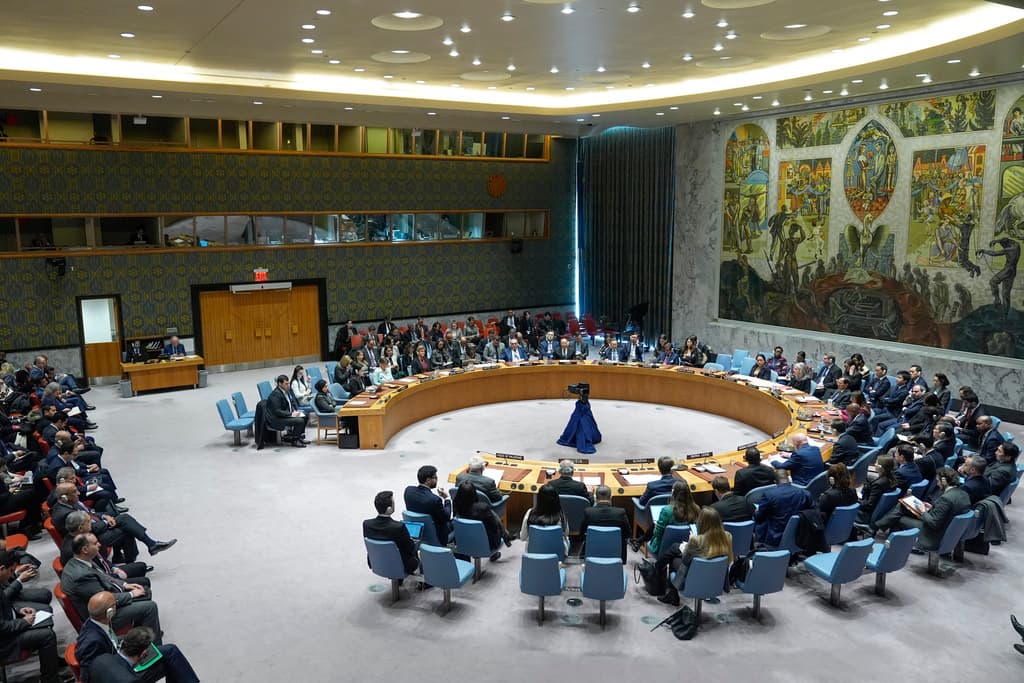After America Abstains, United Nations Security Council Demands Cease-Fire in Gaza During Muslim Holy Month of Ramadan
Resolution also demands release of all hostages held by Hamas, but does not link that demand to the cease-fire during Ramadan, which ends April 9.

UNITED NATIONS — The United Nations Security Council on Monday demanded a cease-fire in Gaza during the Muslim holy month of Ramadan, its first demand to halt fighting, as America abstained on the vote.
The resolution also demands the release of all hostages taken captive during Hamas’ October 7 surprise attack in southern Israel. The measure, though, does not link that demand to the cease-fire during Ramadan, which ends April 9.
The vote comes after Russia and China vetoed an American-sponsored resolution Friday that would have supported “an immediate and sustained cease-fire” in the Israeli-Hamas conflict.
America warned that the resolution approved on Monday could hurt negotiations to halt hostilities by the United States, Egypt and Qatar, raising the possibility of another veto, this time by the Americans.
The resolution, put forward by the 10 elected council members, is backed by Russia and China and the 22-nation Arab Group at the United Nations.
A statement issued Friday night by the Arab Group had appealed to all 15 council members “to act with unity and urgency” and vote for the resolution “to halt the bloodshed, preserve human lives and avert further human suffering and destruction.”
“It is long past time for a cease-fire,” the Arab Group said.
Because Ramadan ends next month, the cease-fire demand would last for just two weeks, though the draft says the pause in fighting should lead “to a permanent sustainable cease-fire.”
Monday’s resolution is the first to be issued by the Security Council calling for a cease-fire.
The American envoy to the UN, Linda Thomas-Greenfield, told the council Friday that the resolution’s text “fails to support sensitive diplomacy in the region. Worse, it could actually give Hamas an excuse to walk away from the deal on the table.”
“We should not move forward with any resolution that jeopardizes the ongoing negotiations,” she said, warning that if the diplomacy isn’t supported, “we may once again find this council deadlocked.”
“I truly hope that that does not come about,” Ms. Thomas-Greenfield said.
